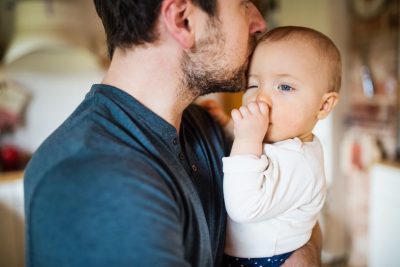Guest contributor and psychotherapist, Daysha Phimphone shares some useful advice for parents of traumatized children. If you or someone you know needs immediate help, please visit our HELP RESOURCES.
Parents, your voices should be heard as well. It is extremely difficult to watch your child grapple with symptoms of trauma. You may awaken to their screams in the middle of the night and there may be places that you can no longer visit because your child becomes visibly shaken. You may have to remove certain words from your vocabulary because they are known triggers to your child’s flashbacks. There are so many adjustments that parents have to make in order to care for their traumatized child. You need to be heard, too! Parents of traumatized children are at an increased risk of experiencing depression and anxiety. You are not alone. Join a support group, seek individual psychotherapy for yourself or find a trusted friend or family member who is willing to listen to you.
You should have opportunities to talk about how the trauma has impacted your life. Has the trauma triggered things from your past? How are you dealing with the experience as a whole? Many parents of traumatized children blame themselves. They experience guilt, shame, depression, anger, and anxiety as a result of the trauma. Seek help for yourself so that you can learn to work through the trauma and be able to parent in a healthy manner.
Parents, if you are not sure if your child has been traumatized, please look for the signs listed below:
- Acting out aggressively toward self or others
- Acting out sexually toward self or others (*acting out sexually toward self-placing objects into vagina or anus, masturbating publicly, harming self during masturbation, preoccupation with things of a sexual nature)
- Intense nightmares
- Suicidal behaviors
- Cutting self or harming self
- Withdrawing from family and friends
- Irritable moods
- Frequent crying
- Loss of interest in activities that he or she used to enjoy
- Failing classes
- Nervous, shaking
- Not being able to fall asleep at night
- Shutting down (not talking)
- Appearing to be in a daze, frozen
- Experimentation with drugs or alcohol
- Sudden change in weight
How to Make Yourselves Emotionally Available
Provide opportunities for your child to talk openly to you about the trauma. There may be times when you feel like saying “let’s move past that” but it is imperative that your child has time to talk about their experiences, their feelings, and their symptoms. Being emotionally available means being present in the moment when your child wants to talk. Healing occurs as your child talks through the pain. This is their way of working through the trauma. As you listen to your child talk, you may hear your child say “It’s all my fault. I should have never been there. I must be a bad person because all these bad things have happened to me.” This is your time to clear up all of the faulty thoughts that contribute to your child’s anxieties.
What NOT to say if your child has been traumatized:
- “I don’t know if I should believe you.”
- “It’ll tear the whole family apart if we say something.”
- “You should have never said anything.”
- “You may have to be taken from the home and never see us again.”
- “It’s over now. There’s no use in talking about it over and over.”
- “You shouldn’t have put yourself in that situation”
- “What did you do to cause him or her to touch you?”
- “What did you say or do to cause him or her to beat you.”
- “You’re damaged now.”
- “You’re going to turn out just like him/her” (referring to the abuser)
- “Stop crying about it.”
- “You’re going to have to get over it.”
- “Stop using this as an excuse all the time.”
- “Snap out of it.”
- “I was abused as a child too and you just have to move on.”
These statements should NEVER be used at any time.
Please find the list of statements below helpful:
- “I love you.”
- “No one has the right to hurt you in any way.”
- “I am here to listen to you.”
- “There is nothing you could have done to make this person hurt you.”
- “You have value.”
- “You have every right to feel how you feel about this terrible thing that happened to you.”
- “I will always be here for you to talk. I am never too busy to hear what you have to say.”
Make yourselves emotionally and physically available. Triggers are abundant and the only way you will know your child’s triggers is if you observe them closely. Mark down the exact date of the incident if it was an isolated incident. If there were several incidents over a period of time, record the season or the time of year that these events occurred. You will need to record these dates and/or months/seasons because most often traumatized children begin to unravel during the anniversaries of the trauma. You will see a peak in behaviors. You need to mentally prepare for these peaks in symptoms. This may be the time that your child needs to hear more affirmations. You may need to be more nurturing at this time. Even if you have a teenager, you can still nurture him or her. Nurturing comes in different forms. For teenagers, they may require more one on one time with you. They may need to sit close to you and hug them tightly. They need this security. Take them out for a walk outside. Tell them what you love about them. Be intentional in all that you do as you nurture your child no matter his or her age.
Final Note: Show love, kindness, empathy, and concern. If you are unsure of how to react or respond to your traumatized child’s needs, call a specialist to help guide you.
 Daysha Phimphone is a Licensed Professional Counselor, Licensed Practical Nurse, and a Certified Child and Adolescent Trauma Professional. She believes traumatized children are often misdiagnosed and therefore, not effectively treated for recovery. She feels that educating her fellow colleagues in the area of trauma could have a profound effect on the care that trauma survivors receive.
Daysha Phimphone is a Licensed Professional Counselor, Licensed Practical Nurse, and a Certified Child and Adolescent Trauma Professional. She believes traumatized children are often misdiagnosed and therefore, not effectively treated for recovery. She feels that educating her fellow colleagues in the area of trauma could have a profound effect on the care that trauma survivors receive.
She is currently in private practice in Savannah, Georgia. Over half of her clients have been diagnosed with PTSD and her commitment to her clients is to educate them, help them to work through the trauma, and to do no harm. She continues to raise awareness and educate others about the impact that trauma has on a child’s development.

